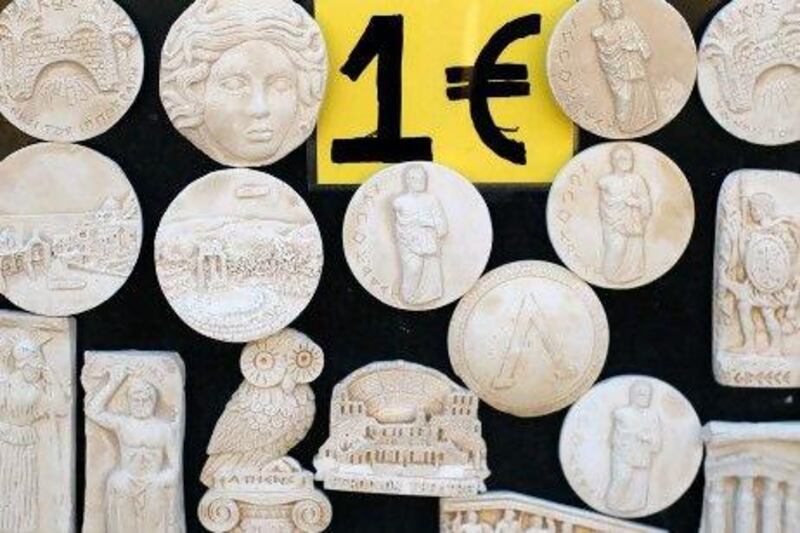From the bar stools at Sweetings, a legendary City lunching haunt, to a pub in Surrey called The Carpenters Arms, the talk is of one thing: can Greece avoid a default on its debt and in the process save the euro?
"This is the end," said one ruddy-faced regular. "They must go back to the drachma. Otherwise we will all be dragged into this mess."
The message does not seem to have got through to Jean-Claude Juncker and his Euro pals in Luxembourg, who are charged with clearing up this mess.
The problem in a nutshell is this: Greece should never have joined the euro, it borrowed too much money when it could, and now, even if it abandons the euro zone and reverts to the drachma, it would be left with unsustainable debts in a strong currency.
One of the advantages of devaluing your currency, as the US has shown, is you also reduce your debts.
However, Greece could be stuck with the worst of both worlds: unable to borrow; and incapable of repaying its debts
Alistair Darling, the former Labour chancellor of the exchequer in the UK, joined the debate with an article in The Times. He suggested Greece should not default, but also thought it should not have to endure a savage austerity programme. Both these aims are laudable, if juxtaposed.
The big risk is of course the C-word: contagion. Even the Brits, not hugely exposed to Greece, fear that if it goes bust, Ireland, Portugal and Spain will follow.
The most obvious solution is for both the public sector and private sectors to write off a certain amount of debt and restructure the remainder into bonds backed by the European Central Bank.
Sound fanciful? It's been done before, mainly in the 1990s when the indebted countries of South America - and Poland and Nigeria - were granted debt relief and a so-called Brady Bond.
But we are running out of time. In a few weeks it will be holiday season in Europe and nothing will be decided until September.
"It's a joke," said a banker friend. "I'm off to Wimbledon."
---
Wimbledon has been more traditional than ever this year. British players have been knocked out, although Andy Murray is clinging on, and it has rained just about every day. This is good news for the roof on Centre Court, but less good for everybody else on all the other courts. It is good, however, for corporate hospitality. Wimbledon does this probably better than anybody else. It is very well organised, but low key and does not interfere with the aesthetic enjoyment of spectators, at least those able to dodge the showers and the delights of the prawn sandwiches and strawberries.
---
Roman Abramovich is a man not put off by the expense of anything. He has just hired the Portuguese wunderkind Andre Villas-Boas, just 33, but who won the treble with Porto last season, as the new Chelsea football team coach.
He is about the same age as some of the club's best players, including Didier Drogba and Frank Lampard.
The cost to Abramovich hiring and firing seven managers in as many years is more than £50 million (Dh293.8m). Villas-Boas himself was at Chelsea four years ago with Jose Mourinho.
Let's hope the fickle Russian Abramovich keeps the Portuguese and spends any residual cash on bailing out Greece.
[ rwright@thenational.ae ]





